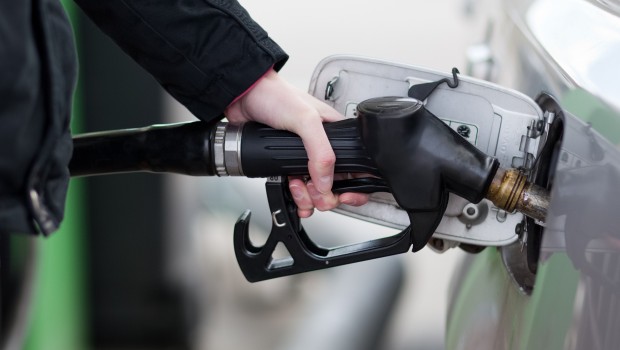Fuel prices have been fluctuating in the UAE for more than three years, which has significantly increased the financial worries of motorists on a tight budget. The fluctuations observed in prices are a direct result of the liberalization strategy for fuel prices that was implemented in the UAE in August 2015. After the implementation of this strategy, the fuel prices in the UAE move with the market and are directly affected by several factors. The major factors that affect fuel prices in the UAE are transportation cost of fuel and price of Brent (Global Benchmark for Crude Oil) in the international market.
The fuel prices have continued to fluctuate in the first four months of 2019. While the first two months of the year recorded a decrease in prices, the fuel prices jumped again for the months of March and April.
An Overview of Fluctuations Observed in Fuel Prices during 2019
The year 2018 ended on a relatively good note for motorists on a tight budget as the last month of the year (December) recorded a significant drop in prices. It was the second consecutive month of decrease in prices and this positive trend continued for the first two months of 2019 as well.
The fuel prices, however, jumped again in the month of March, followed by another increase in prices recorded in April. Fuel prices for the month of April are only marginally lower than the fuel prices in December 2018, which clearly reflects the trend of drastic fluctuations observed in the fuel prices during the last five months.
The table given below provides details of fluctuations observed in prices of all types of fuel since December 2018.
Factors Affecting Fuel Prices in the UAE
The Ministry of Energy and Industry announces the new fuel prices at the end of every month. Several important factors are taken into account while setting new prices. These factors help authorities in determining the new fuel prices and are also a major reason behind fluctuations observed in prices.
It is important to note that fuel prices are now inclusive of the 5% Value Added Tax (VAT). The Value Added Tax was first implemented in the UAE on January 1, 2018 and since then all commercial and business activities are subject to 5% VAT.
Given below are the important factors that affect fuel prices in the UAE:
Price of Brent
As mentioned previously, the price of Brent directly affects fuel prices in the UAE. The latest price of Brent is taken into consideration while setting new fuel prices in the UAE. The price of Brent remained unstable during the first two months of 2019, which caused a temporary fall in the UAE’s fuel prices. As soon as the price of Brent stabilized in global markets, the prices for all types of fuel observed a hike in the UAE.
Transportation Cost of Fuel
A straightforward yet very important factor that affects fuel prices in the UAE is the transportation cost of fuel. Any change in the cost of transportation of fuel can cause an increase or decrease in fuel prices.
OPEC Agreement 2019
OPEC (Organization of the Petroleum Exporting Countries) has recently signed a new agreement according to which, oil production has been cut to 1.2 million barrels per day. This development is expected to cause fluctuations in the price of Brent during 2019, which will directly affect fuel prices in the UAE.
Future Fuel Price Trends in the UAE
The fuel prices in the UAE are expected to fluctuate in the coming months, mainly due to the OPEC agreement 2019. In the current circumstances, fuel prices can jump unexpectedly at any time of the year, which will increase the financial burden on motorists.
Motorists must plan to cope with such unexpected developments so that they can keep their fuel expense in check. It has become important for motorists to adopt fuel-saving practices and look for other ways that can help them minimize their fuel expense during 2019.
How Buying an Electric Vehicle (EV) is a Long-term Solution?
Buying an EV is a long-term solution for motorists who have been worried about fluctuating fuel prices in the UAE. Electric vehicles diminish the need for conventional fuel as they generate power from electric batteries. These vehicles can be an ideal buying option for people in the UAE who are worried about keeping their fuel expense in check. Buying an EV is also a good option due to a number of benefits that are offered to EV owners and buyers in the UAE.
The UAE government has started an incentive program for EV owners and buyers to promote the sales of EVs in the UAE. EVs don’t emit harmful gases and are considered as an eco-friendly commuting option. The authorities in the UAE have been urging motorists to switch from their conventional combustion engine vehicles to EVs in a bid to reduce the carbon footprint of the country.
Here are some of the new and upcoming electric vehicles that people in the UAE can consider buying:
- Tesla Model 3
- Nissan Leaf
- Audi e-Tron
- BMW i3
- Kia Niro EV
- Hyundai Kona EV
- Jaguar I-Pace
- Hyundai Ioniq
Electric vehicles are now available in various vehicle segments so unlike a few years ago, car buyers will not be limited in their choice while buying a new EV. Electric vehicles are considered as the future of commuting and the reputation of EVs is improving in the UAE car market by the day. People are now more interested in buying EVs than ever before as these vehicles eliminate the need for conventional fuel and offer relief against fluctuating fuel prices in the UAE.
If you are planning to upgrade your vehicle to an electric vehicle, then don’t forget that with us, you can sell your used car in just 30 minutes while all the post-sale paperwork is handled by SellAnyCar.com’s team.




